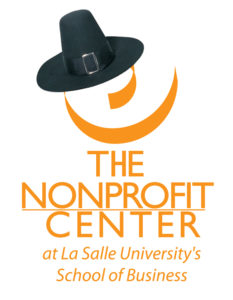Whither compassion?
0 comment
As Thanksgiving approaches, I cannot help but focus more on the communities in which we live, and the responsibility that those of us who “have” have for those who do not. And, yet, in these times, it seems it has become all too easy for the haves to shirk that responsibility, to find reasons why it isn’t their duty. Have we as a society lost our understanding of compassion?
This semester, I’m teaching one of my favorite classes in our Masters in Nonprofit Leadership program: governance. I love watching students as they peel back the layers, learning how much or how little they actually know about what a board is supposed to do, come to understand just what their boards actually do, realize how their executive directors conduct, play or actually really do partner with their boards. But I also love the insights I get as I see boards through others eyes.
Right now, the best performing board in the group of twelve students belongs to the board (called Session) of a church. Each individual church is tightly controlled by the national organization, and everything is clearly spelled out as to what should be done, when, how, etc. This doesn’t mean, by any stretch, that the church has laid out a set of best practices, but just a set of practices that it likes. Beyond tightly controlling, these practices are also very old, and it is unclear when those practices were last reviewed or updated. But none of this is what makes this board the best. That falls to their level of engagement and the fulfillment of their responsibilities: these board members come to meetings prepared, having done their homework, and ready to operate in all three of Chait et al.’s modes: fiduciary, strategic and generative. And their minutes makes this evident. While this is the exception among the boards these students are studying, the reality is it an exception across most boards, period. So, why? Are they simply a remarkable group of people that then comprises a remarkable group? Or is there something else going on?
As I thought about this, I kept returning to one possible explanation: because all members of the Session are also members of the congregation, a congregation that is, by all descriptions, a very tight community (though of a good size), do these board members feel a higher level of responsibility? Because they have to face these people on a regular basis, may have very close friends among the congregants, and many solid acquaintances, for sure, do members of the Session feel an exceptional need “not to screw up.”
It is clear from decades of working with nonprofit boards that the legal stipulations that fall to all board members is not sufficient to compel board members to learn what they are supposed to do and then do it with professionalism, care and commitment. If not that, then does the desire—or pressure—to not let down friends and members of your special community whom you are serving provide the necessary impetus?
When I look at boards that are required by funders to have a percentage of the board be comprised of clients or at boards that come to this position on their own, I don’t see those boards performing at a higher level, working harder at what they are supposed to be doing, in order to provide the best for their colleagues on the board and others in need of the organization’s services.
The whole premise of needing to have clients on a board is so misdirected, it truly comes as no surprise that having clients on a board doesn’t create a need among its board members to perform as they should. It presupposes that a) we can only provide for the needs of others by having those “others” on the board to tell us what needs to be done; b) having clients on the board is the best way to hear from clients; c) having clients on the board is ethical and fair to them; and d) we are not empathetic human beings.
Empathy—the ability to recognize and share the emotions of another, either because you have experienced it yourself or you have the ability to put yourself in the shoes of others. Does someone have to have experienced racism or anti-semitism to be empathetic and want to stop these behaviors in others? Must a person have lost a loved one or friend in a mass shooting or fire to want to help those who are suffering from direct experience? Must board members have a personal connection to those for whom they are a fiduciary in order to be high performing board member? If so, we are doomed as a society.
If we cannot be empathetic, can we even be human?
The opinions expressed in Nonprofit University Blog are those of writer and do not necessarily reflect the opinion of La Salle University or any other institution or individual.


